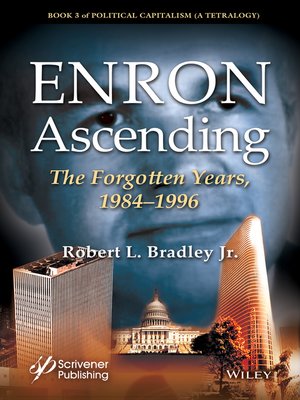
Sign up to save your library
With an OverDrive account, you can save your favorite libraries for at-a-glance information about availability. Find out more about OverDrive accounts.
Find this title in Libby, the library reading app by OverDrive.



Search for a digital library with this title
Title found at these libraries:
| Library Name | Distance |
|---|---|
| Loading... |
A great fall cannot be understood apart from the rise that preceded it. Enron Ascending is the only book to date that examines in detail the first two-thirds of that iconic energy company's life. Thus, it is the only book to date that exposes the deepest causes of Enron's stunning collapse. Nobel economist Paul Krugman predicted that history would look upon Enron's plummet as a greater turning point than the fall of the Twin Towers.
Enron Ascending explains the shock of the company's fall by recalling the astounding achievements of Enron's birth, childhood, adolescence, and early maturity. It sets forth the once-celebrated but now-forgotten industry and innovation that caused the company and its reputation to soar stratospherically. At the same time, always conscious of the company's fate, the book highlights throughout the developing habits of thought and behavior that later evolved into self-destructive acts of desperation and deceit.
Written fifteen years after the firm's demise, Enron Ascending offers the long perspective of a uniquely positioned insider, Robert L. Bradley, Jr., the company's director of public-policy analysis and Chairman Ken Lay's personal speechwriter. The book also offers a library of previously unavailable information, drawn from Bradley's innumerable corporate documents and unrepeatable interviews, which he collected in his capacity as the company's prospective historian.
Most important, however, Enron Ascending offers an antidote to the unending stories, studies, and books about Enron that are presented as just-the-facts but are in reality shaped decisively by the worldview of their authors. Bradley shows, beyond dispute, that the early habits which set precedents for Enron's history-making demise were directly contrary to the free-market behaviors and capitalist attitudes generally blamed for Enron's fall.







